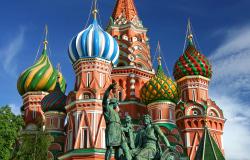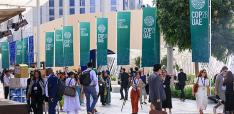Civil Society Surfaced in Russia. And That's Bad News

Nick Strogov explores how and why authoritarian states encourage civil society.
Over time, liberal thinkers have believed that a strong civil society in Russia could counteract the growing concentration of power, nationalism, authoritarian laws, and expansionist goals. However, recent events reveal a more intricate and disquieting reality: although civil society has flourished, it has also brought to light the exact concerns that liberals had feared for so long.
In November of 2023, Russia stood before the United Nations to present its latest human rights report. Western nations eagerly sought specifics on Russia's legislative stance regarding LGBT advocacy, discrimination against foreign agents, and the management of opposition demonstrations. The report aimed to address these queries and more posed by the global community.
Once again, the foundation of Russian law reiterated its basis on "traditional moral and family values," ostensibly ensuring equitable treatment of journalists and permitting protests, albeit under a system mandating prior notification. The authors of the report emphasized "the active development of civil society" within the nation.
Challenging the veracity of this last assertion isn't straightforward. Presently, Russia boasts over 212 thousand registered non-profit organizations. However, this number barely scratches the surface. What lies beneath is a notable surge in civic engagement since February 2022, which has brought to light some troubling events.
Just in recent weeks, several significant incidents have surfaced. Authorities initiated an investigation against Yuri Dud, a prominent liberal journalist, on charges of discrediting the army. Social activist Vitaly Borodin catalyzed this move, consistently urging law enforcement to scrutinize statements made by actors and musicians dissenting from official Russian policies.
In various regions, private medical facilities refused to perform abortions. Officials maintain that this decision stems solely from the voluntary actions of management to support the nation’s demographic policies. The head of the Russian Orthodox Church, Patriarch Kirill, advocated for a ban on abortions in private institutions, though strict measures may not be necessary. Reginal leaders argue that the medical sector is willing to forgo additional income for the greater good.
During a concert on National Unity Day, Russia's most popular singer, Shaman, simulated pressing a red button on a mock "nuclear briefcase." Social activists didn't express outrage, and the patriotic performance garnered immense enthusiasm on social media. However, law enforcement disrupted a Zero People band concert a week later for failing to display solidarity on the Ukrainian issue. On camera, the musicians publicly apologized and proclaimed their patriotism, reflecting a growing trend in Russia.
Moreover, the 'showcase of freedom of assembly' during the takeover of Makhachkala airport by local residents, aiming to prevent a flight carrying alleged 'refugees' from Israel while chanting anti-Semitic slogans, was a brilliant testament to the misuse of rights under the guise of civil liberties. But security forces initiated just several minor administrative cases. The Mufti of Tatarstan even advocated for leniency toward the participants, portraying them as victims of alleged "Western intelligence services."
Observing these events without a strictly "liberal" lens reveals activists aiming to shield society from perceived enemies of the state, businesses voluntarily sacrificing income to bolster the nation's birth rate, musicians expressing creative freedom and patriotism, and citizens uniting in large groups.
Even though Russian authorities are often involved in such incidents, dismissing the surge of civic activity would be inaccurate. Civil society is burgeoning in the country.
In today's climate, many Russians support imperialism, autocracy, discrimination, nationalism, and conflicts with neighboring nations. Citizens lodge complaints, employing legal and police avenues to censor opponents, exploiting the remnants of democratic institutions. Consequently, many human rights exist primarily on paper, enshrined solely in the Constitution. Nevertheless, these circumstances do not invalidate the observation that present-day Russians seem to be edging closer to civil society compared to a decade ago during the extensive Bolotnaya Square protests against Vladimir Putin.
Do voluntary associations exist in Russia? Undoubtedly, and plentifully. Are they independent from the state? Often not just in formality but in reality. Genuine radical patriotism cannot be dismissed. Do citizens collaborate to advance their beliefs? Yes, even if those beliefs revolve around conservatism, patriarchy, and the promotion of aggression. Do they influence public opinion and establish new social norms? Yes, even if official public opinion polls are met with skepticism. Is society mobilized? Yes, pro-Kremlin demonstrations are sizable, though often with administrative support. Does diversity of thought prevail? Yes, various factions, from far-right activists to left-wing communists, often lend their support to the official government, despite internal discord.
Authoritarian states now seek to foster political activity in their preferred direction, departing from suppressing grassroots initiatives, a trend prevalent in the 20th century. Relying solely on instilling fear and uncertainty among the populace is no longer as effective.
Once there was a proclamation that civil society would invariably guide a country toward goodness and freedom, but this classical theory has proven flawed. Mindfulness and a proactive approach may serve values far removed from humanistic ideals. Consequently, Russian liberals who have emigrated, equally mindful and proactive, now observe from abroad as their opponents shape a new political reality in Russia—actively aligned with the Kremlin’s desires. However, political exiles lack both the strength and resources to intervene in these developments.
Nick Strogov, a human rights researcher and journalist from Russia, completed a dissertation on the right to resist oppression at St. Petersburg State University. He previously worked for the Rosbalt News Agency, which was unfairly labelled a discriminatory foreign agent status due to its opposition publications against the government. Nick's work primarily centres on legal and human rights issues within Russia. Notably, he is listed among the 940 potential foreign agents in Russia, illustrating the constraints imposed on fostering diverse public opinions by this label.
Photo by Julius Silver


